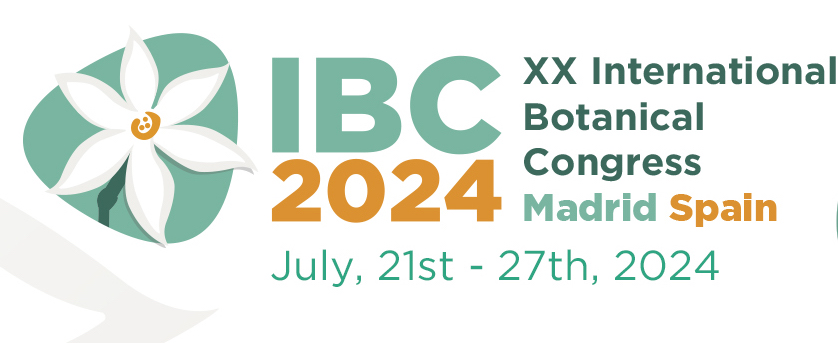Two symposia focused on legumes are planned for the IBC. See: XX International Botanical Congress Madrid 2024
Legume Systematics: from collaborative networks to genome sequencing
Organisers: Manuel de la Estrella & Dario Ojeda
Abstract: Leguminosae (Fabaceae) is the third largest angiosperm family in terms of species richness with c. 800 genera and over 23,000 species. In ecological and economic terms, the family is also one of the most important plant groups of the World: it not only includes economically important food crops but also key components of a wide variety of ecosystems. Legume systematics benefits from the intensive work by the international Legume Phylogeny Working Group, an informal group of international scientists working towards a new insight of the classification and evolution of these plants. Increasing efforts on phylogenomics studies revealed multiple whole genome duplications within legumes, that along with the new NGS data available are contributing to our better understanding of the group diversification and evolution. Additionally, the new era of collaborative tools allowed the publication, and since then a continuous update, of the Leguminosae checklist provided for the worldwide community through a specific online legume data portal. This symposium will host leading experienced researchers as well as young systematics from across the World to introduce the most recent achievement in taxonomy, phylogenomics and evolution of legumes.
Speaker 1: Marianne Le Roux1, Domingos Cardoso2 & Anne Bruneau3.
1 South African National Biodiversity Institute (SANBI), 3Université de Montréal
Talk: The future of legume systematics and the use of collaborative tools
Speaker 2: Rowan Schley1 & Le Min Choo2.
1University of Exeter, 2Singapore Botanic Gardens
Talk: Evolution of legumes: from introgression to whole genome duplication.
Speaker 3: Ting-shuang Yi1 & Rong Zhang Kunming1.
1Insitute of Botany, Chinese Academy of Sciences
Talk: Resolve tribal relationships of Fabaceae using nuclear, plastid and mitochondrial genomic data
Recent advances in the megadiverse legume subfamily papilionoideae
Organisers: Rafaela Trad, Greg Kenicer & Ozan Sentürk
Abstract: The megadiverse legume subfamily Papilionoideae contains over 14,000 species across every major terrestrial ecosystem, with myriad lifeforms and life-histories. Its representatives are well-known for their economic and social importance (e.g., beans, peas, lentils, rosewoods and many others), and their ecological significance in nutrient cycling, habitat infrastructure and coevolution with nitrogen fixing bacteria. Although almost any evolutionary question can be asked about the papilionoids, building a comprehensive phylogeny is the first step in trying to understand the successful evolutionary history of this group. Recent molecular advances have opened new avenues and allowed systematists to include hundreds or thousands of nuclear genes, accounting for different processes and distinct gene histories. For example, it was suggested by Koenen et al. (2021) that the relationships in Papilionoideae could be better represented by a network, raising questions such as what are the causes of this reticulation?—ILS, hybridization, polyploidization or gene tree estimation error. Therefore, this symposium will focus on large-scale studies across the subfamily and key clades within it highlighting the new findings and questions that remain to be answered. This will serve as a valuable update for a wide audience as it aims to present the first comprehensive phylogeny for this subfamily generated with nuclear genes, along with talks presenting the recent advances in understanding the large Dalbergioid and Mirbelioid clades, the tribe Phaseoleae, and phylogenetic reconstruction methods. The proposed symposium will also highlight the collaborative approach of Legume Phylogeny Working Group, (LPWG), and demonstrate how collaborative networks is speeding up advances in one of the most successful angiosperm groups. The interdisciplinary approach to be presented in this symposium could serve as framework for studying other large groups of plants, making the symposium attractive to a broad audience at the IBC 2024.
Talk 1: A new phylogeny of the megadiverse legume subfamily Papilionoideae
Rafaela J. Trad, Flávia F. Pezzini, R. Toby Pennington, Gwilym Lewis, Bente Klitgaard, Rus-sell Barrett, Anne Bruneau, Warren Cardinal-McTeague, Domingos Cardoso, James Clugston, Manuel de la Estrella, Ashley N. Egan, Colin Hughes, Erik Koenen, Todd McLay, Daniel Murphy, Matt Renner, Jens Ringelberg, Rowan Schley, Mohammad Vatanparast, Martin Wojciechowski, Darren Crayn, Olivier Maurin, Raquel Negrão, Catherine McGinnie, Paul Bai-ley, William J. Baker, Félix Forest, and Gregory J. Kenicer
Talk 2: Advances in legume systematics: insights from the Dalbergiod clade (from rose-woods to fodder plants and peanuts)
Ana Paula Fortuna-Perez and Bente B. Klitgaard
Talk 3: Revisiting Ebenus L. (Leguminosae): A Molecular Perspective
Ozan Şentürk, Zeki Aytaç, and Gregory J. Kenicer
Talk 1: Combining legacy Sanger with new phylogenomic DNA sequence data to produce a densely sampled papilionoid phylogeny for comparative biology
Flávia Fonseca Pezzini, Moabe Ferreira Fernandes, Rafaela Jorge Trad, Gregory J. Kenicer, Erik J. M. Koenen, Jens J. Ringelberg, Kyle G. Dexter, Colin E. Hughes, and R. Toby Pennington
Talk 2: Developments in the phylogenetic and taxonomic studies of southern African genera of the tribe Phaseoleae
Abdulwakeel A. Ajao, Tlou S. Manyelo, and Annah N. Moteetee
Talk 3: Phylogenetic resolution of Mirbelieae (Fabaceae) using the Angiosperms353 target-capture probe set
James A. R. Clugston, Russell L. Barrett, Matthew A. M. Renner, Peter H. Weston, Lyn G. Cook, Peter C. Jobson, Brendan J. Lepschi and Michael D. Crisp
Registration for the IBC is open info here, and registration form here
Posters can still be submitted and the deadline is February 1st 2024 guidelines here and submission page here
